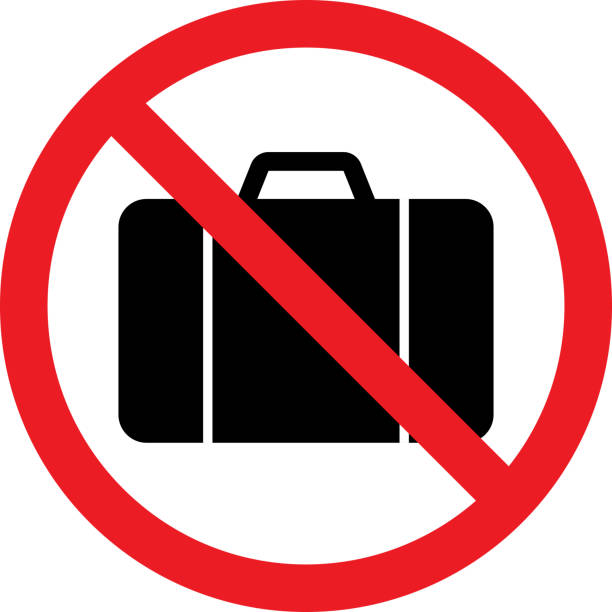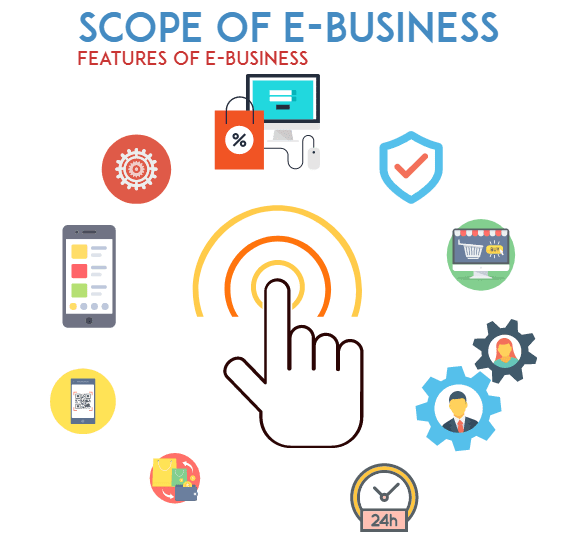FFL stands for Federal Firearms License so how to get an FFL without a business In order to legally purchase and sell firearms, you must get an FFL in your country. However, there are many people who don’t know how to go about getting one.
Disclaimer ‣ IN This article is for knowledge purposes only. Whatever I have written in this, I have written this with the help of the information given in all the newspapers and Google. Our aim is only to share knowledge and not to hurt anyone.
What is an FFL (Federal Firearms License)?

The Federal Firearms License (FFL) is a license that allows civilians to purchase, possess, and carry firearms. An FFL can be obtained through a business or through an individual.
The requirements for obtaining an FFL are outlined in Title 18, United States Code, Section 923.
An FFL can be issued to either an individual or a business.
An individual must possess a valid State driver’s license, passport, or another identification card that shows they are allowed to purchase firearms.
A business must have the proper licenses and meet certain requirements set by the ATF. To obtain an FFL from a business, the business must first contact the ATF to determine if they are eligible.
The ATF will then provide the business with an application form and instructions on how to complete it. Once the application is complete, the ATF will issue the business an EIN (Employer Identification Number).
The EIN must be displayed on all firearms purchases made through the business. To obtain an FFL from an individual, the individual must first contact their State licensing authority to determine if they are eligible.
The licensing authority will then provide the individual with an application form and instructions on how to complete it. Once the application is complete, the licensing authority will issue the individual an FFL. The FFL must be displayed on all firearms purchases made through the business.
To manufacture, import, or repair a firearm, you must have a Federal Firearms License (FFL). To obtain an FFL from an individual, the individual must first contact their State licensing authority to determine if they are eligible.
The licensing authority will then provide the individual with an application form and instructions on how to complete it. Once the application is complete, the licensing authority will issue the individual an FFL.
- The FFL must be displayed on all firearms purchases made through the business. To manufacture, import, or repair a firearm, you must have a Federal Firearms License (FFL). To obtain an FFL from an individual, the individual must first contact their State licensing authority to determine if they are eligible.
- The licensing authority will then provide the individual with an application form and instructions on how to complete it. Once the application is complete, the licensing authority will issue the individual an FFL. The FFL must be displayed on all firearms purchases made through the business.
- To manufacture, import, or repair a firearm, you must have a Federal Firearms License (FFL). To obtain an FFL from an individual, the individual must first contact their State licensing authority to determine if they are eligible.
- The licensing authority will then provide the individual with an application form and instructions on how to complete it. Once the application is complete, the licensing authority will issue the individual an FFL.
- The individual must then follow the instructions on the application to complete any necessary paperwork that is required by local, State, or Federal law.
- Once the documentation to complete an application is received from a licensing authority, it will be forwarded to NFA for review and approval.
Why do I need an FFL?
An FFL is a Federal Firearms License. It’s required to purchase firearms from a federally licensed firearms dealer (FFL). Without an FFL, you’re not allowed to purchase firearms from a federally licensed firearms dealer.
There are a few reasons you might need an FFL:
- You’re purchasing a firearm for personal firearms use.
- You’re purchasing a firearm for use in a business.
- You’re purchasing a firearm as part of a transaction that includes other goods or services.
How to get your own FFL
Getting a Federal Firearms License (FFL) is not as difficult as most people think. The biggest challenge is usually finding the time to go through the process.
There are a few steps you need to take in order to obtain an FFL:
① Find a licensed firearms dealer in your area. Ask around or visit the National Shooting Sports Foundation website to find a dealer near you. You can also go through online firearms dealers if you cannot find a local dealer.
② Contact the dealer and set up an appointment to see the firearms they have for sale. Bring along your state driver’s license, passport, and a passport photo if you have them. The dealer will also ask for your identification information, including your Social Security number.
③ The dealer will ask you several questions about your experience with firearms, including whether you have any felony convictions or pending criminal charges related to firearms. They will also want to know if you have ever been convicted of a misdemeanor involving violence with a firearm or any other kind of weapons offense.
④ After completing the application process and passing a federal background check, the dealer may give you an approval letter to bring back to your state
Types of FFLs (Federal Firearms License)
There are a few different types of FFLs, and each one carries its own set of requirements and benefits.
Here are the three most common types of FFLs:
gun dealers, manufacturer’s representatives, and importers.
Gun dealers are the most common type of FFL, and they’re responsible for selling guns from a store or online.
They need to have a federal firearms license (FFL) in order to do this, and there are a few requirements that must be met in order to qualify.
First, the dealer must be licensed by the federal government. Second, the dealer must maintain a certain amount of inventory – typically between 10 and 20 guns – at all times.
Finally, the dealer must have a physical location where customers can go to buy guns.
Manufacturers’ representatives (MROs) are similar to gun dealers in that they’re responsible for selling guns from a store or online. However, MROs are different in two important ways.
First, MROs aren’t required to have a federal firearms license. Second, MROs aren’t required to keep any inventory at all – they can sell whatever amount of guns they want at any time. This means MROs can sell as many guns as they’d like, but they’re not obligated to keep a certain amount of inventory at all times.
Benefits of an FFL (Federal Firearms License)
A firearms dealer’s license, or FFL, is a law-required license in the United States for individuals who wish to engage in the business of selling firearms. The license allows dealers to sell firearms from their business location.
There are several benefits to obtaining an FFL license, including:
- Dealers are protected under federal and state laws that protect consumers from unsafe and unfair business practices.
- Dealers can receive discounts on firearms and ammunition purchases from manufacturers and other merchants.
- Dealers can receive reimbursement for expenses incurred while conducting business, such as gun locks, liability insurance, and security cameras.
- Dealers can participate in programs that provide training and education on firearms safety and ownership.
How to get a Business License to be an FFL
If you are looking to obtain an FFL without a business, there are several steps that you can take.
The first step is to research which state has the lowest requirements for an FFL. Once you have determined the state with the lowest requirements, you can contact the bureau in that state and inquire about getting a license.
You will need to provide proof of your identity, as well as evidence of your financial stability.
Once you have obtained an FFL in a low-requirement state, you will then need to find a dealer who is willing to sell firearms to you via interstate commerce.
You will need to provide the dealer with your newly acquired FFL, as well as all of the required documentation. The dealer will then need to send a copy of your FFL to the bureau in your original low-requirement state.
Now that you have obtained both an FFL and a valid NFA transaction from a licensed dealer, it is time to begin the process of purchasing firearms.
Always make sure that you are aware of any background check requirements that may apply before making a purchase.
Drawbacks of the License
There are a few drawbacks to getting an FFL without a business.
- First, you’ll need to be able to prove you’re qualified to deal with firearms. This can be done by passing a criminal background check, having a valid hunting license, or being a citizen of a state that allows concealed carry.
- Second, you won’t be able to sell firearms directly to consumers. You must first sell them through a licensed firearms dealer.
- Third, you won’t be able to make as much money as someone with a business.
- Fourth, you’ll need to devote more time and energy to the process than someone who has a business. Fifth, you’ll have less control over the product.
Where to buy guns
If you’re looking to purchase a firearm without the help of a licensed firearms dealer, then your best bet is to look online.
Online gun dealers are not required to conduct background checks on their customers, which means that you may be purchasing a firearm without knowing it. Here are five online dealers that you should consider checking out:
1. GunBroker.com
GunBroker is one of the largest online gun dealers in the world, and they offer a variety of firearms and ammunition options.
You can find all types of firearms, from handguns to long guns, at GunBroker.com. You can also buy ammo separately from GunBroker.com, and you can even check out their selection of suppressors and Silencers.
2. CheaperThan Dirt
cheaper than Dirt is another online gun dealer that offers a variety of firearms and ammunition options. You can find everything from handguns to long guns at CheaperThan Dirt.
You can also buy ammo separately from CheaperThan Dirt, and you can also check out their selection of suppressors and Silencers.
3. The Firing Line
The Firing Line is an online firearms store that sells a variety of firearms and ammunition options. You can find everything from handguns to long guns at The Firing Line. You can also buy ammo separately from The Firing Line, and you can even check out their selection of suppressors and Silencers.
4. Academy Sports & Outdoors Academy Sports & Outdoors
Is another online gun dealer that offers a variety of firearms and ammunition options.
You can find everything from handguns to long guns at Academy Sports & Outdoors. You can also buy
How much does it cost?
When it comes to getting an FFL, the amount of money you will spend will vary depending on your location and what services you require.
However, in general, the process for acquiring an FFL can range anywhere from around $200 to $1,500.
What are the requirements for getting an FFL license?
An FFL license is not necessary to purchase firearms from a dealer. However, an FFL must be registered with the ATF and meet certain requirements before they can sell firearms.
The most common requirement for an FFL is to have a business location. However, there are several other requirements that must be met in order to obtain an FFL license.
Requirements for obtaining an FFL license vary depending on the state in which the applicant resides. In general, however, applicants must be at least 18 years of age and have a valid driver’s license or state-issued ID.
They must also pass a federal background check and pay a registration fee. Some states also require applicants to have experience handling firearms, although this is not always required.
If you reside in a state that does not require an FFL, you can still purchase firearms from a dealer by completing the Federal Firearms Licensee (FFL) application form and submitting it to your local law enforcement agency.
How do I get a license for my state?
If you are looking for a business to get a Federal Firearm Licensee (FFL), you may be surprised to learn that there is no “one-size-fits-all” solution.
Depending on your state, the process of acquiring an FFL may involve submitting paperwork to your state’s Department of Justice, meeting with a compliance officer, or even attending a firearms safety class.
Here is a brief guide outlining the various steps you may need to take in order to get an FFL in your state:
① Determine which state you want to apply for an FFL in. There are 27 states that require an FFL for the purchase of certain types of firearms, including handguns and long guns.
If you reside in one of these states, you will need to contact your state’s Department of Justice and inquire about the process for acquiring an FFL.
② Obtain all necessary documentation. This includes proof of identity, residency, and ownership of the firearms being purchased. In addition, some states require photographs and/or fingerprints of the purchaser.
③ Submit required paperwork to your state’s Department of Justice. This may include forms provided by your
How do I keep my guns in public when I don’t live in a gun-friendly state?
There are a few ways to get an FFL without having a business. One way is to have a friend or family member who is in the firearms business help you out.
Another way is to look online for gun dealers who are willing to give you a gun license without requiring a business.
There are also gun shows where you can buy and sell firearms without having to go through the hassle of getting an FFL.
Additional Tips and tricks
If you’re looking to get an FFL without a business, there are a few different routes you can take. Each has its own set of benefits and drawbacks, so it’s important to weigh them carefully before making a decision. Here are three methods to consider:
1. Use a Third-Party Dealer
One option is to use a third-party dealer. These dealers have licensed firearms dealers who work with private sellers to help them get FFLs.
They can often provide helpful advice and assistance in getting the process moving, and they may have access to resources that a business can’t.
However, using a third-party dealer may be more difficult than other options because they typically don’t have the same level of customer service or infrastructure as a traditional firearms retailer.
2. Obtain an ATF Firearms License (FFL) through the State Department of Justice (DOJ)
Another option is to obtain an ATF firearms license through the DOJ.
This route is usually less difficult than obtaining an FFL through the gun manufacturer or a third-party dealer, but it requires more paperwork and patience.
While there are no guarantees that this route will be available in your state, it’s worth checking out if you’re determined to go
How do I become a Licensed Firearms Dealer without a Business?
Becoming a Licensed Firearms Dealer (LFDL) is not as difficult as one might think. In fact, there are a number of ways to become an LFDL without starting a business from scratch.
Here are five tips for becoming an LFDL without a business:
1. Look into State Licensing Programs. Many states have licensing programs for individuals who want to become firearms dealers.
The requirements for licensure vary from state to state, but typically you will need to pass a criminal background check, pay an application fee, and meet other qualification requirements.
2. look into Gun Dealer Licensing Programs. Another option is to look into gun dealer licensing programs. These programs are similar to state licensing programs, but they are designed for gun dealers rather than individual firearm buyers. A gun dealer license typically requires that you meet certain financial and other qualification requirements, and may also require you to participate in safety courses and comply with certain store policies.
3. Consider Becoming a Private Vendor. One option is to become a private vendor – this means that you will not operate under the auspices of a licensed firearms dealer.
- Instead, you will act as an independent contractor who sells firearms through your own business.
- This permits you to sell firearms without the need for a federal license, but it does not allow you to conduct business through your licensed dealer’s FFL in a way that those licenses permit.
- The practical effect of this is that if the FFL holder decides they don’t want to do business with you anymore, there are no processes in place under which you can go back and get the license from them.
4. Consider Operating through an Approved Firearms Manufacturer Dealer.
- Another option is to work with a federally-approved firearms manufacturer or FFL dealer who can provide you with the appropriate ATF paperwork and assume all of the regulatory requirements associated with being an FFL holder.
- You will still be in compliance with Federal, state, and local laws, provided you are working through a federally-approved entity.
5. Avoid creating a Conflict of Interest Through Your Relationship With Any Licensed Dealer.
- No one is expected to tell their business partner that they cannot sell guns to certain people, but
What are the necessary requirements to get an FFL?
There are a few things you need to have in order to get an FFL without a business. First, you will need to be a resident of the state in which you are applying for your FFL.
This means that you have to be physically present in the state and have a permanent residence there.
You also need to be at least 21 years old and have a clean record. Finally, you will need to provide documentation that shows you are financially able to own and operate your own business.
Is an FFL required for a gun shop?
An FFL is not always required for a gun store. In fact, some states don’t require an FFL at all. If you’re in one of these states, you can still sell firearms without an FFL.
However, if you want to sell firearms through a gun store, you’ll need an FFL.
Here’s a list of the states that don’t require an FFL:
Alaska, Arizona, Arkansas, Colorado, Connecticut, Delaware, Florida, Georgia, Hawaii, Illinois, Indiana Iowa Kansas Kentucky Louisiana Maine Maryland Massachusetts Michigan Minnesota Mississippi Missouri Montana Nebraska Nevada New Hampshire New Jersey New Mexico New York North Carolina North Dakota Ohio Oklahoma Oregon Pennsylvania Rhode Island South Carolina South Dakota Tennessee Texas Utah Vermont Virginia Washington West Virginia Wisconsin Wyoming Federal Firearm Licenses
Since 1996, the federal government has required you to have a license in order to ship or receive firearms through the mail.
If you want to receive firearms from an FFL dealer who is licensed under federal law, you’ll most likely need to fill out Form 4473 and take your documents with you when you go in to start the transfer process.
Which guns can I buy with my FFL?
The answer to this question largely depends on the state in which you reside. In all 50 states, residents can purchase firearms either through a gun store or through an FFL (Federal Firearm License) holder.
However, there are a few states where purchasing firearms from an FFL is not allowed, and in others, purchase options may be more limited.
The following is a list of states in which the purchase of firearms from an FFL is not allowed:
California, Connecticut, Hawaii, Illinois, Maryland, Massachusetts, New Jersey, New York, Oregon, Pennsylvania, and Washington.
Additionally, South Dakota does not allow any type of firearm purchase through an FFL holder.
In the remaining 45 states purchase of firearms from an FFL is allowed provided certain requirements are met.
The following are the requirements for the purchase of firearms from an FFL in each state:
Alaska*, Arkansas*, Delaware*, Florida*, Georgia*, Idaho*, Indiana*, Kansas*, Kentucky*, Louisiana*, Maine*, Michigan*, Minnesota*, Mississippi*, Missouri*, Montana* Nebraska* Nevada* New Hampshire* New Jersey* New Mexico* New York** North Carolina*** North Dakota*** Ohio**** Oklahoma***** Oregon***** Pennsylvania**** Rhode Island***** South Carolina***** Tennessee***** Texas****
How much does the process cost?
Getting an FFL without a business can be done for a fraction of the cost of getting one through a business. Fees for obtaining an FFL from the ATF are only $4 for a temporary permit and $8 for a permanent permit. The process can also be done online.
The requirements to obtain an FFL are as follows:
You must have a business that is in good standing with the state in which you plan to conduct firearms transactions
- You must have a Firearm Owner’s Identification Card (FOID)
- You must provide evidence that you are able to financially support yourself and the business
- You must meet FBI fingerprint requirements
- Your business must be located in an area where firearms are legal to own
For more information on obtaining an FFL, visit the ATF website or contact your local ATF field office.
Do I need to be a licensed firearms dealer or manufacturer to become an FFL holder?
No, you do not need to be a licensed firearms dealer or manufacturer to become an FFL holder. In fact, there are several ways to become an FFL holder without having a business.
One way is to become a license holder with the Bureau of Alcohol, Tobacco, Firearms, and Explosives (ATF).
To become a license holder with ATF, you must pass an exam and meet certain requirements. License holders with ATF can also become FFL holders by applying for an FFL transfer license.
Another way to become an FFL holder is to become a limited agent of the Federal Bureau of Investigation (FBI).
To become a limited agent of the FBI, you must pass an exam and meet certain requirements. Limited agents of the FBI can also become FFL holders by applying for an FFL transfer license.
Licensed firearms dealers and manufacturers are not the only ones who can apply for an FFL transfer license.
Non-license holders also can apply for an FFL transfer license if they are in the business of transferring firearms as part of their business.
The only requirement for a non-license holder to obtain an FFL transfer license is that they meet certain requirements set by the Bureau of Alcohol, Tobacco, and Firearms (ATF).
Since an FFL transfer license is an individual licensed under the law, you must be able to prove that you are able to meet the requirements that come with the license.
When applying for an FFL transfer license, it’s important to remember that there are rules involved in obtaining and maintaining this type of license. The FFL transfer process can be daunting and confusing for many people who do not know what they’re doing. Many people
How long will it take to get my application approved?
Getting your application approved can take a few weeks, depending on how quickly the bureau approves applications. It’s a real-time process, so it is not possible to tell you exactly how long it will take.
How do I get my finances approved?
The bureau will look at your personal financial information and use this information to determine the amount of assistance you are eligible for.
Personal finance applications can be submitted by mail or submitted over the internet through our website (www.texasbenefitsaccess.gov). When you submit your application, simply attach all supporting documentation as requested by the bureau.
What documents do I need to submit with my application?
You will need to provide:
1. A copy of your latest pay stub or a document showing that you have earned income.
2. A copy of your most recent Texas tax return (if you are not required to file it). All other tax returns, W-2s, and 1099s are acceptable as long as they show you made money from a job or business during the last 12 months and all
FAQ {FAQ {Frequently Asked Question}
How To Get An FFL without a business
FFL stands for Federal Firearms License. In order to legally purchase and sell firearms, you must get an FFL in your country. However, there are many people who don’t know how to go about getting one.
If you’re thinking of buying a gun or have any questions, this article is the perfect place to start!
What is an FFL (Federal Firearms License)?
The Federal Firearms License (FFL) is a license that allows civilians to purchase, possess, and carry firearms. An FFL can be obtained through a business or through an individual.
The requirements for obtaining an FFL are outlined in Title 18, United States Code, Section 923.
An FFL can be issued to either an individual or a business.
Why do I need an FFL?
An FFL is a Federal Firearms License. It’s required to purchase firearms from a federally licensed firearms dealer (FFL). Without an FFL, you’re not allowed to purchase firearms from a federally licensed firearms dealer.
There are a few reasons you might need an FFL:
You’re purchasing a firearm for personal firearms use.
You’re purchasing a firearm for use in a business.
You’re purchasing a firearm as part of a transaction that includes other goods or services.
How to get your own FFL
Getting a Federal Firearms License (FFL) is not as difficult as most people think. The biggest challenge is usually finding the time to go through the process.
There are a few steps you need to take in order to obtain an FFL:
1. Find a licensed firearms dealer in your area. Ask around or visit the National Shooting Sports Foundation website to find a dealer near you. You can also go through online firearms dealers if you cannot find a local dealer.
Benefits of an FFL (Federal Firearms License)
A firearms dealer’s license, or FFL, is a law-required license in the United States for individuals who wish to engage in the business of selling firearms. The license allows dealers to sell firearms from their business location.
There are several benefits to obtaining an FFL license, including:
Dealers are protected under federal and state laws that protect consumers from unsafe and unfair business practices.
Related Term
Conclusion
If you are looking for how to get an FFL without a business, there are a few things you need to do first. First, find a licensed firearms dealer in your area that is willing to sell firearms without a business license.
Next, reach out to them and ask if they would be willing to become an FFL representative for you. Finally, set up a meeting with them so you can go over the process and answer any questions they may have.
‣ I hope friends, through this article, I have given you information about how to get an FFL without a business You must have got the information. So share your suggestions with us.
Like this information Or have Something to share!
















